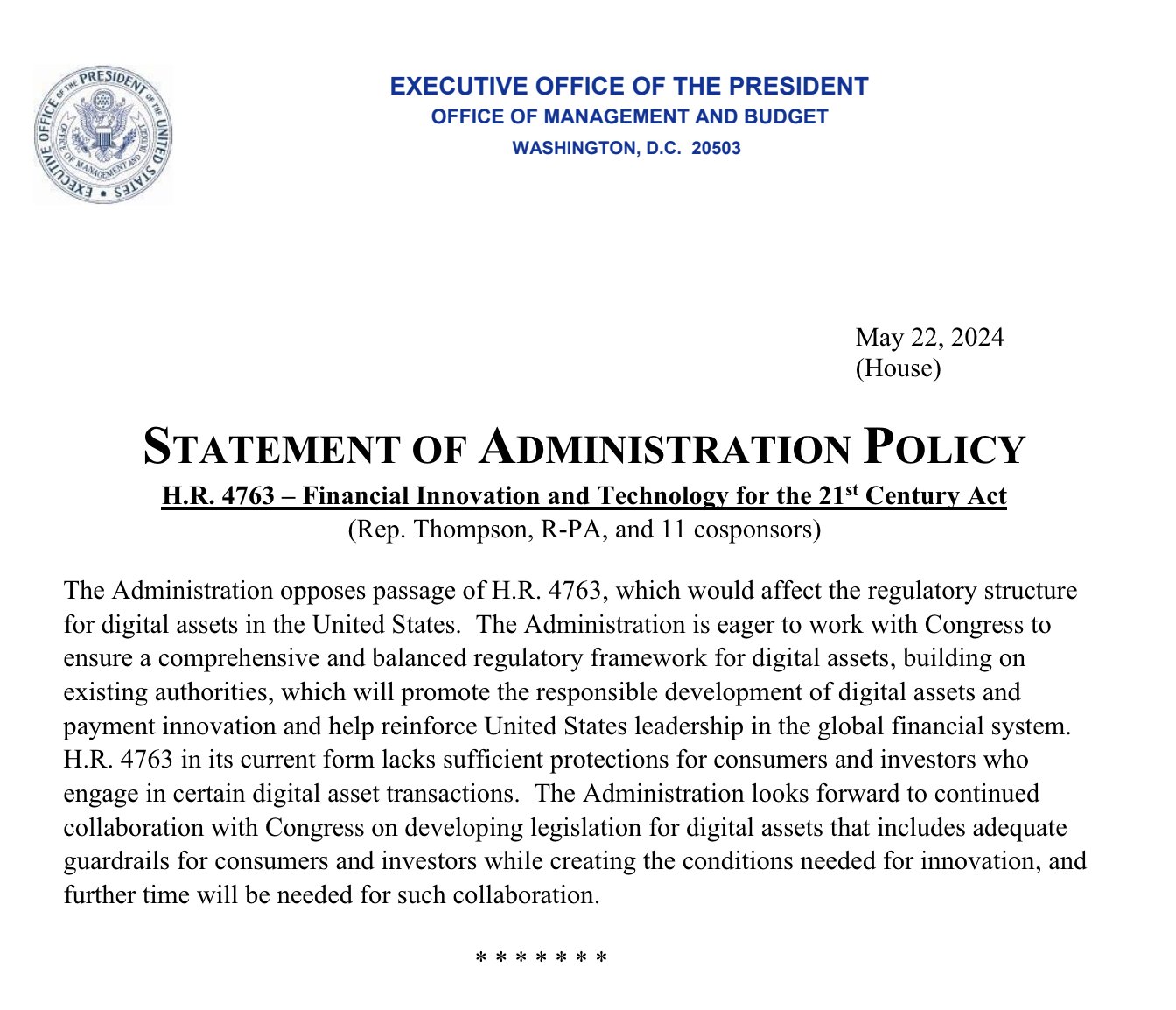

The Biden Administration calls for collaboration with Congress to establish a comprehensive framework for digital asset regulation.
The Biden Administration has expressed its desire to work alongside Congress to create a regulatory framework for digital assets. The statement was made in relation to the proposed H.R. 4762 - Financial Innovation and Technology Act 21 (FIT 21), which is designed to establish "clear guidelines for digital assets."

The Chamber of Digital Commerce, an advocacy group for the Bitcoin industry, has asserted the importance of FIT 21. "The current regulatory environment in the U.S. has created uncertainty and driven business overseas, stifling innovation and resulting in a loss of jobs and investment," a representative from the organization stated. They further emphasized that the Act "addresses these issues by creating clear guidelines for the classification, trading, and regulation of digital assets, ensuring consumer protection."
Despite FIT 21 being slated for a vote in the House, where it is expected to pass, the White House has announced that it opposes the bill in its current state, citing a lack of adequate consumer and investor protections. "The administration is eager to work with Congress to ensure a comprehensive and balanced regulatory framework for digital assets...which will promote the responsible development of digital assets and payment innovation and help reinforce the United States leadership in the global financial system," according to the White House statement released today.
The administration's opposition to FIT 21 follows a pattern of cautious stances towards the Bitcoin industry. This includes a veto threat by President Joe Biden earlier this month against another bill that proposed to allow financial institutions to custody Bitcoin. Interestingly, some reports suggest that the administration's approach might be shifting as political dynamics evolve, particularly with former President Donald Trump showing an embrace of Bitcoin.
The outcome of the House vote on FIT 21 will be a significant indicator of the legislative direction for digital asset regulation in the United States.